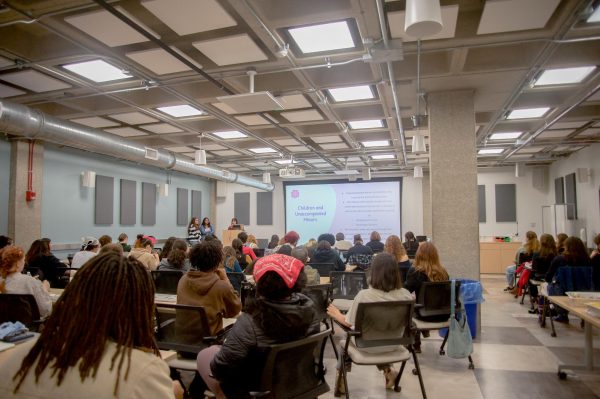Student Life Leaves Student Priorities, Voices Behind
Last Friday, when the police were patrolling campus and handing students jaywalking tickets in excess of $100, student voices called for a better solution. At the time, Campus Safety largely dismissed those voices. It took over a hundred people speaking up to gain administrative support for a solution that focused on the students. The fact that we need numbers like that to enact win-win policies is demonstrative of a problem bigger than just the crosswalk: the administration’s chronic refusal to involve students in policymaking is leading to bad policies in many areas of student life.
On Monday, after a protest planned in response to the tickets received over 120 responses on Facebook in less than 48 hours, I began to meet with members of the administration. The most substantial of my demands was a community-oriented solution. Among other things, a community-oriented solution would include policy changes to mitigate the consequences of using a undesignated crosswalk and policy guiding both drivers and students to mitigate the risk of motor vehicle injuries. The student subgroup of a solution-focused committee, which I will lead, will pitch a multifaceted plan, with the full backing of the administration, that will include the city and Oberlin Police Department as well. As the organizer, I’d like to thank everyone who stood up for the community with me. Without all of you, a community-oriented solution would not have been possible.
During negotiations, multiple administrators agreed that they never would have thought of the Science Center’s unofficial crosswalk as a shortcut students use to avoid arriving late to class, demonstrating the administration’s challenges with student-based policies. Even when administrators mean well, it’s almost impossible to produce policy solutions that work for students without any of us in the room. And when administrators make important student life decisions without involving the students who they impact, it harms not only the student body but the overall community as well.
The crosswalk isn’t the only area of policy where student involvement has rarely entered consideration. Many of the College’s most problematic policy areas have little, if any, student input. Residential Education policy and the Academic and Administrative Program Review have about as much student involvement as they do policy success. Which is to say there’s a long way to go, especially in these areas dealing specifically with student life.
ResEd — one of the administrative areas most directly involved in student life — has a transparency problem. Important information is often not disclosed to students, and massive disparities in housing quality give a few individuals incredible and unregulated decision-making power. With the question of when low-quality spaces will be renovated persistently unaddressed, the mechanisms by which students are placed in those spaces must no longer remain unanswered. Adding to the pile of questions is how ResEd can bring about the sense of community it so frequently advertises as reality. In all of these processes, ResEd does not appear to prioritize student input.
Similarly, during the AAPR, student voices were repeatedly suppressed. Just like its process, the final recommendations leave many unanswered questions, specifically about implementation. Many students on campus are deeply concerned about the AAPR’s impact on student life, since questions in those areas have also been left unanswered. A committee of 31 members contained just three students, none of whom were elected. Questions linger in the community about whether or not those members were able to advocate for students.
What do these problem policy areas have in common? Students and their perspectives are almost entirely absent from policy decisions that shape our Oberlin experiences. This needs to change.
First, the administration should increase transparency in student life policy. Information about these policy areas and why they’re so riddled with problems needs to be public. Many students feel that they can’t use our voices if we don’t know what obstacles we need to talk about.
Second, controversial policy changes should be held to a vote. If a supermajority of student opposition is expected, that’s probably a decision that should not be made.
Third, more student positions need to open up connections between administrators and students. In the realm of Campus Dining Services, for example, student ambassadors work with administrators to connect policy with the community. The idea of student ambassadors would be an excellent model for other administrative areas, among them ResEd.
Fourth, once students, such as senators, RAs, and ambassadors, are in positions of authority, we need more power, autonomy, and policymaking agency. With that policymaking agency, we will see better, more community-centered policies that work for us all.
We can do this. We can unite as a community to solve these problems. They’re bigger than any one student or administrator. But if the administration can trust us and let us bring our voices to the tables of policy, we can solve these problems together.


